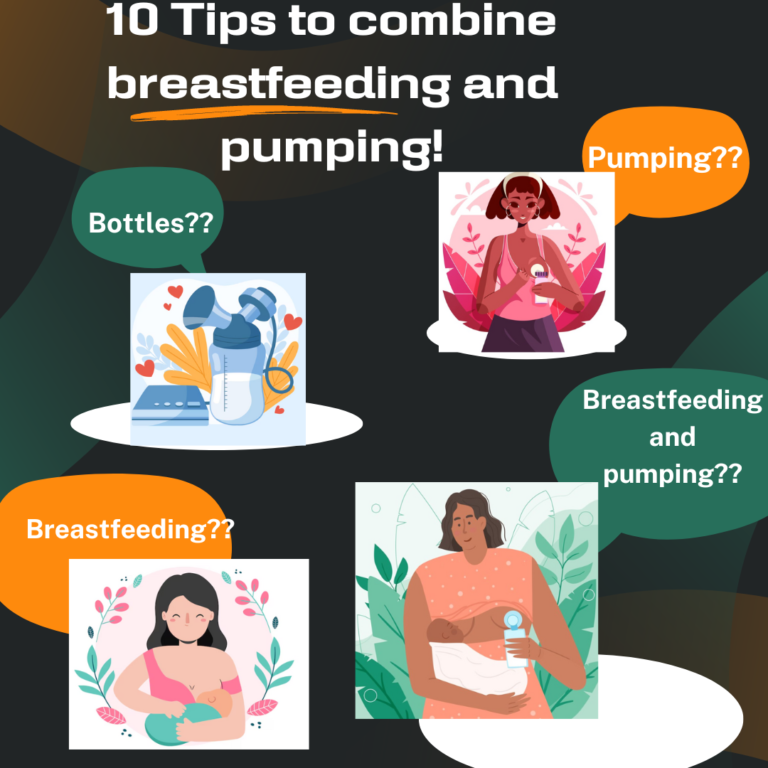Pregnancy Constipation: Know the reason, and treatment
Pregnancy is a beautiful journey, but it can bring along various discomforts, one of which is constipation. In this article, we will delve into what pregnancy constipation is, its causes, treatment options, and essential information to help expectant mothers navigate this common issue.

What is Constipation?
Constipation is a common digestive issue characterized by infrequent bowel movements or difficulty passing stool. It occurs when stool moves slowly through the colon, resulting in dry and hardened feces.
Condition can lead to discomfort, bloating, and a sense of incomplete evacuation. Various factors can contribute to constipation, including dietary choices, dehydration, sedentary lifestyles, medications, and certain medical conditions.
Why Do Women Suffer from Constipation During Pregnancy?
Pregnancy hormones, such as progesterone, can relax the muscles in the digestive tract, slowing down bowel movements. The growing uterus (as the baby is growing with time) can exert pressure on the intestines resulting into constipation.
When Does Constipation in Pregnancy Start?
Constipation during pregnancy can start in the first trimester and persist throughout the entire pregnancy.
How Common is Constipation in Pregnancy?
Constipation is a common issue during pregnancy due to hormonal changes and the pressure exerted on the intestines by the growing uterus. It can start as early as the first trimester and persist throughout pregnancy. While common, its severity varies among individuals.
To relieve constipation during pregnancy, the dietary modifications are important. Increasing fiber intake from fruits, vegetables, and whole grains, along with proper hydration, can soften stool and encourage regular bowel movements. Regular, safe physical activity also helps stimulate the digestive system.
Consulting a healthcare provider is essential before using any medications or supplements. They may recommend specific treatments like stool softeners or laxatives if lifestyle changes alone are insufficient.
Understanding the causes and symptoms of pregnancy-related constipation and proactively managing it with a balanced approach can help expectant mothers find relief and enjoy a more comfortable pregnancy.
What Causes Constipation During Pregnancy?
Constipation during pregnancy can be attributed to several factors, many of which are related to the physiological and hormonal changes that occur in the body as it prepares for childbirth. Here are some of the primary causes of constipation during pregnancy:
- Hormonal Changes: Elevated levels of the hormone progesterone during pregnancy can relax the muscles in the digestive tract. This relaxation can slow down the movement of food through the intestines, leading to constipation.
- Pressure on the Intestines: As the pregnancy progresses, the growing uterus puts increasing pressure on the intestines. This pressure can obstruct the normal flow of stool, making it harder to pass.
- Iron Supplements: Many pregnant women take iron supplements as part of their prenatal care to prevent anemia. Iron supplements can sometimes contribute to constipation.
- Dietary Factors: A diet that lacks sufficient fiber can contribute to constipation. Fiber may help in softening the stool and promote regular bowel movements.
- Dehydration: Pregnancy can increase the body’s need for fluids, and if you don’t consume enough water, it can lead to dehydration, which can, in turn, result in harder stools that are difficult to pass.
- Physical Inactivity: Reduced physical activity or bed rest, which is sometimes recommended during pregnancy due to certain medical conditions, can slow down the digestive process and contribute to constipation.
- Pressure on the Rectum: As the baby grows, the pressure on the rectum can make it more challenging to pass stool comfortably.
- Hemorrhoids: Constipation can increase the risk of developing hemorrhoids, which can cause further discomfort and contribute to a cycle of constipation.
- Medications: Some medications taken during pregnancy may have constipation as a side effect.
- Stress and Anxiety: Emotional factors, including stress and anxiety, can affect digestion and bowel habits. Pregnancy itself can be a stressful time for some women.
Making dietary and lifestyle adjustments and consulting with your healthcare provider for safe and effective treatments can help manage constipation and ensure a smoother pregnancy experience.

How is Constipation During Pregnancy Diagnosed?
Constipation during pregnancy is typically diagnosed based on a combination of your reported symptoms and your medical history. Here’s how constipation during pregnancy is typically diagnosed:
- Medical History( bowel habits, the frequency of bowel movements, the consistency of your stool, and any discomfort or pain )
- Physical Examination
- Discussion of Symptoms ( abdominal pain, rectal bleeding, or changes in appetite)
- Evaluation of Risk Factors
- Diagnostic Tests (if necessary) (blood tests, imaging studies (like abdominal ultrasound or X-rays), or colonoscopy)
It’s essential to be open and honest with your healthcare provider about your symptoms and concerns. They can provide you with guidance on managing constipation during pregnancy, suggest lifestyle changes, and, if necessary, recommend safe and appropriate treatments or medications tailored to your specific situation.
Always seek medical advice if you have severe or persistent constipation during pregnancy, as it’s crucial to ensure your well-being and address any underlying issues that may require medical attention.
How Do You Relieve Constipation During Pregnancy?
Relieving constipation during pregnancy involves a combination of dietary, lifestyle, and, in some cases, medical interventions. Here are strategies to help alleviate constipation while ensuring the safety of both you and your baby:
- Dietary Changes:
- Increase Fiber Intake: Consume more fiber-rich foods, such as whole grains, fruits, vegetables, legumes, and bran. Aim for at least 25-30 grams of fiber per day.
- Prunes or Prune Juice: Prunes are a natural laxative and can be effective in relieving constipation. You can eat prunes or drink prune juice.
- Fiber Supplements: If dietary changes alone aren’t sufficient, consider fiber supplements like psyllium husk, but consult your healthcare provider first.
- Hydration:
- Drink plenty of water throughout the day. Staying well-hydrated softens the stool and facilitates bowel movements.
- Exercise:
- Engage in regular, moderate physical activity. Simple exercises like walking, swimming, or prenatal yoga can help stimulate the digestive system.
- Stool Softeners:
- Your healthcare provider may recommend over-the-counter stool softeners like docusate sodium. Always consult your doctor before using any medication during pregnancy.
- Laxatives:
- In some cases, your healthcare provider may prescribe safe laxatives if other methods aren’t effective. Never use laxatives without medical guidance during pregnancy.
- Probiotics:
- Consider taking probiotic supplements or consuming probiotic-rich foods like yogurt to maintain a healthy balance of gut bacteria.
- Regular Toilet Habits:
- Respond promptly to the urge to have a bowel movement. Ignoring the urge can lead to worsening constipation.
- Avoid Constipation Triggers:
- Limit or avoid caffeine, processed foods, and excessive intake of dairy products, as they can contribute to constipation.
- Iron Supplements:
- If iron supplements are causing or worsening constipation, discuss with your healthcare provider. They may adjust the dosage or recommend alternative forms of iron.
- Positioning:
- When on the toilet, use a footstool or stack of books to elevate your feet. This position can help align your colon for easier bowel movements.
- Stress Reduction:
- Practice relaxation techniques like deep breathing, meditation, or prenatal yoga to manage stress, which can affect digestion.
- Consult Your Healthcare Provider:
- If your constipation is severe or persistent, or if you experience bleeding, abdominal pain, or other concerning symptoms, contact your healthcare provider for evaluation and guidance.
Remember that it’s crucial to consult your healthcare provider before trying any new treatments or medications during pregnancy. They can provide personalised advice based on your specific situation and ensure that any interventions are safe for you and your baby.
Safe laxatives during pregnancy
When dealing with constipation during pregnancy, it’s essential to exercise caution when considering the use of laxatives. It’s generally recommended to try dietary and lifestyle modifications first, and only resort to laxatives under the guidance of a healthcare provider. Here are some laxatives that are considered safer options during pregnancy:
- Bulk-Forming Laxatives: These laxatives contain fiber and work by softening the stool and increasing its bulk, making it easier to pass. Psyllium-based products like Metamucil are examples of bulk-forming laxatives that are generally considered safe during pregnancy.
- Stool Softeners: Stool softeners, such as docusate sodium (Colace), help to moisten and soften the stool, making it less difficult to pass. They are often recommended for short-term use during pregnancy, but it’s essential to consult your healthcare provider before using them.
- Glycerin Suppositories: Glycerin suppositories can provide relief by lubricating and stimulating the rectum. They are considered safe for occasional use during pregnancy when other methods have not been effective. Consult with your healthcare provider before using suppositories.
- Mild Osmotic Laxatives: Osmotic laxatives like lactulose or magnesium hydroxide (Milk of Magnesia) may be recommended in some cases, but only under the supervision of a healthcare professional.
It’s crucial to emphasize that you should never use over-the-counter laxatives or any medication during pregnancy without consulting your healthcare provider first. They can assess your individual situation, recommend the most suitable laxative if necessary, and ensure it is safe for both you and your baby. Additionally, your healthcare provider can offer guidance on the appropriate dosage and duration of use.
How Can I Reduce My Risk of Becoming Constipated During Pregnancy?
Reducing the risk of constipation during pregnancy involves making some lifestyle adjustments. Here are several tips to help prevent constipation:
- High-Fiber Diet: Foods like whole grains, fruits, vegetables, legumes, and bran can help soften your stool and promote regular bowel movements.
- Stay Hydrated: Drink an adequate amount of water throughout the day. Staying hydrated helps keep your stool soft and easier to pass.
- Regular Exercise: Engage in regular physical activity. Simple exercises like walking, swimming, or prenatal yoga can help stimulate your digestive system and reduce the likelihood of constipation.
- Small, Frequent Meals: Instead of large, infrequent meals, opt for smaller, more frequent meals and snacks. This can help alleviate pressure on your digestive tract and promote smoother bowel movements.
- Limit Iron Supplements: If you’re taking iron supplements as prescribed by your healthcare provider, discuss the possibility of adjusting the dosage or exploring alternative forms of iron that are gentler on the digestive system.
- Probiotics: Consider incorporating probiotics into your diet or discuss them with your healthcare provider. Probiotics can help maintain a healthy balance of gut bacteria, which can aid in digestion.
- Fiber Supplements: If dietary changes alone aren’t sufficient, your healthcare provider may recommend a fiber supplement that is safe for pregnancy. Always consult your doctor before adding any supplements to your routine.
- Avoid Constipation Triggers: Some foods and beverages, like caffeine and processed foods, can contribute to constipation. Limit or avoid these triggers as much as possible.
- Consult Your Healthcare Provider: If you’re experiencing persistent or severe constipation despite these efforts, or if you have concerns about any symptoms, consult your healthcare provider for guidance and potential treatment options.
Remember that every pregnancy is unique, so what works best for you may vary. It’s important to communicate with your healthcare provider throughout your pregnancy to ensure your individual needs are met and to address any specific concerns related to constipation or other health issues.
When Should I See My Healthcare Provider?
If constipation becomes severe, or if you experience bleeding, abdominal pain, or other concerning symptoms, contact your healthcare provider promptly.
Conclusion
Constipation is a common discomfort during pregnancy, but it can be managed with the right strategies and medical guidance. By making lifestyle adjustments and seeking appropriate treatment, expectant mothers can alleviate this issue and focus on enjoying a healthy pregnancy.
FAQs
Can I take any laxatives during pregnancy?
It’s essential to consult your healthcare provider before using any laxatives during pregnancy. They can recommend safe options based on your specific situation.
Are there any foods that can help prevent constipation during pregnancy?
High-fiber foods like whole grains, fruits, vegetables, and legumes can help prevent constipation. Drinking plenty of water is also crucial for maintaining regular bowel movements.
Is constipation during pregnancy harmful to the baby?
Constipation itself is generally not harmful to the baby. However, if left untreated and severe, it can lead to discomfort for the mother, which may indirectly affect the pregnancy. Therefore, it’s important to manage constipation for your well-being.















+ There are no comments
Add yours